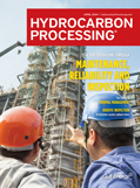Construction
Uncommon lessons: Shell-and-tube heat exchangers—Part 2
Shell-and-tube heat exchangers (STHEs) are the most common heat transfer process equipment in all types of industrial plants.
History of the HPI: The 1970s: Crises, clean air, plastic bottles and the DCS
The 1970s were marked by several historical events that affected not only the hydrocarbon processing industry (HPI) but nations around the world.
Overcome inflation and supply chain issues in construction
Inflation and supply chain disruptions are not new to the construction industry, but the severe combination of these factors and the rapid pace of change driven by the COVID-19 pandemic are unprecedented.
Managing complexity in engineering and construction projects
It is widely accepted that new management methods are needed to curb the frequent delays and cost overruns observed in engineering and construction projects.
HP Flashback: Excerpts from the 1960s: Petrochemicals rise in prominence and new know-how in refining processes
Petrochemicals rise in prominence and new know-how in refining processes
History of the HPI: The 1960s: Synthetic oils, zeolite catalysts, LLDPE, OPEC and and creation of the PLC
During the 1960s, the global refining and petrochemical industries witnessed new processes and products that enhanced the daily lives of millions of people around the world.
Overview of decarbonization pathways for the oil and gas and petrochemical industries—Part 1
This two-part article will cover the seven pathways to decarbonizing the oil and gas and petrochemical industries.
Editorial Comment: Pathways towards a more sustainable HPI
Among the dominant, far-reaching themes within the global refining and petrochemicals industries are the increase in biofeedstocks processing to produce biofuels and greener petrochemicals, the continued push towards clean fuels production, regulations and initiatives to adhere to net-zero emissions targets, and a surge in capital investments to build renewables and sustainable aviation fuels (SAF) plants.
HP Flashback: Excerpts from the 1950s: Capacity expands after WW2 and technologies and maintenance mature
The following is a mixture of technical articles, columns and headlines published in the 1950s by <i>Petroleum Refiner,</i> the forerunner to <i>Hydrocarbon Processing</i>.
History of the HPI: The 1950s: Capacity expansion, HDPE/PP, polycarbonate, computers and rocket science
The 1950s marked an evolution in the use of oil by nations around the world.

- Shipping major and GCMD to pilot FAME-VLSFO marine biofuel bunker fuel in Singapore 5/9
- Diesel profit margins decline amid lower demand, more capacity 5/9
- World Energy and Boston Consulting Group sign agreement on SAF certificates 5/9
- Analysis: Chandra Asri purchase of Shell Singapore refinery brings scale, risk 5/9
- New $1.5-B natural gas pipeline to provide feedstock to Dow's petrochemicals plant and other industrial facilities 5/8
- Shell to sell interest in Singapore Energy and Chemicals Park to CAPGC 5/8




